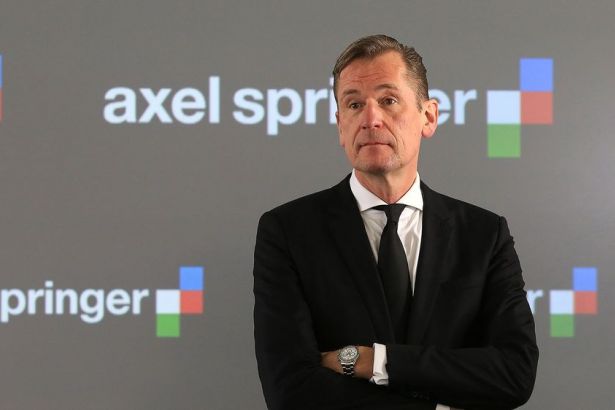German bourgeoisie to get involved in tension between Berlin and Ankara

As German government began to pursue an aggressive foreign policy with Ankara to render Turkish President Recep Tayyip Erdoğan into a re-governable actor, the German bourgeoisie too, apparently, decided to get involved in the game.
The largest German media group Axel Springer SE aims to organise a campaign in Turkey by bringing the 30 biggest German companies listed on the stock market together. German media giant enounced the move, stating that it aims to increase pressure on the Turkish government to release the detained German citizens, including journalist Deniz Yücel. Germany's Die Welt correspondent Deniz Yücel had been imprisoned in February, and was accused by Erdoğan himself for working as a "terror agent."
On Saturday, German Chancellor Angela Merkel said, "Germany will have no choice but to restrict its economic ties with Turkey to press into releasing German citizens" imprisoned.
Writing letters to the chairmen of 30 major companies that constitute together the German Stock Index (DAX), Mathias Döpfner, chief executive officer of Axel Springer SE, asked for support for a campaign to be held in Turkish media.
According to Frankfurter Allgemeine Sonntagszeitung (FAS), Döpfner wants Germany’s leading industrial giants, banks, and insurance companies to participate in the campaign with their names and signatures of the board chairmen. Döpfner underlined that Deniz Yücel was the most well-known arrestee, but the campaign would not be organized only for him, and that they wanted to draw attention to the worsening situation in Turkey in general.
AT LEAST HALF OF THE COMPANIES MUST PARTICIPATE IN THE CAMPAIGN
According to FAS, more than half of the companies that have been called by the German media outlet must take part in the campaign to be able to put it into effect. The report also says, "the companies have walked on the thin ice so far, and they have concerns that there might be coercive measures on their employees in Turkey due to the campaign."
"The call for a campaign on such an issue has already got positive reactions from some companies," Axel Springer SE said in a statement sent to DPA news agency.
Berlin told its citizens in July to exercise caution traveling to Turkey and warned Ankara on taking measures that will hinder German investment there.
Economic pressure on Turkey "is working," German Foreign Minister Sigmar Gabriel said on Aug. 15. Gabriel commented on reports that Turkish government gave Berlin a list of companies it was targeting for suspected links to last year’s coup attempt, which had stirred controversy in Germany.
"We have responded and warned German companies before investing in Turkey. And what happened? There was a broad debate in Turkish society. Then Erdoğan declared that the company list issue was the result of a single misunderstanding," he said.
In November 2016, Axel Springer SE had announced it would not make new investments in Turkey because of the country’s crackdown on journalists. The company will sell its remaining 7 percent stake in Turkish broadcaster Doğan TV, Mathias Döpfner, chief executive officer of Axel Springer SE, had said.
It has options to sell its remaining stake in Doğan TV for about 170 million euros by 2022, a company spokesman said. The publisher sold 2.3 percent in Doğan TV for 55.3 million euros in January 2016.
In his latest article, Kemal Okuyan, the General Secretary of the CC of the Communist Party of Turkey (TKP) and soL columnist, wrote "the American and German front is trying to render Erdoğan into a re-governable actor, this is clear. However, it is also clear that they have pretty much lost their hopes. In particular, the 'coward' German State’s fight against Erdoğan with all its institutions and political actors should be interpreted as evidence that a new deal with him will be extremely difficult."




